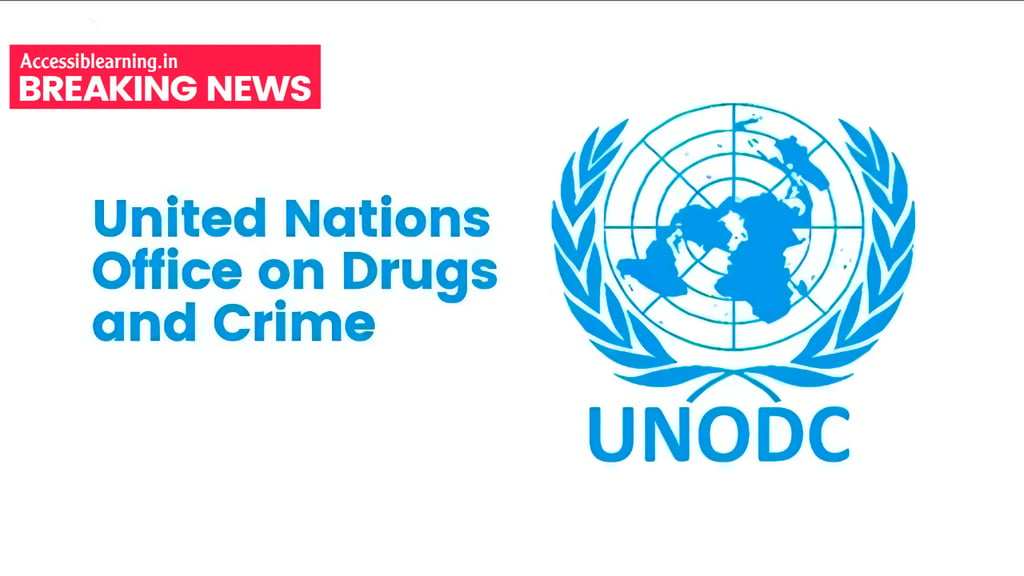
UNODC 2025 Report Exposes Global Expansion of Asian Crime Syndicates
The latest 2025 UNODC report reveals a disturbing shift in global crime trends, as organized crime syndicates from East and Southeast Asia expand their reach into Africa, Latin America, and Europe. Leveraging digital tools, corruption, and weak governance, these transnational groups now threaten global stability. Discover how modern criminal networks are evolving — and what the world must do to respond.
NEWS/CURRENT AFFAIRSPOLITICAL JOURNEYEUROPEAN POLITICSNEPOTISM/SOCIAL ISSUES
Keshav Jha
4/26/20255 min read


In a recent and eye-opening revelation, the United Nations Office on Drugs and Crime (UNODC) has published a comprehensive report indicating a significant expansion of transnational organized crime groups beyond their traditional strongholds in East and Southeast Asia. The report, grounded in years of data collection, field observations, and intelligence sharing with international law enforcement agencies, signals a disturbing trend: organized crime is becoming increasingly global, agile, and digitally enabled.
A Global Footprint of Illicit Influence
Historically, countries in East and Southeast Asia have been hotspots for organized crime networks involved in activities ranging from drug trafficking and illegal gambling to wildlife trafficking and human smuggling. However, the latest UNODC report shows that these groups are no longer operating within limited geographic boundaries. Instead, they are expanding operations across continents — from Africa and Latin America to Europe and the Pacific — taking advantage of weaker law enforcement systems, corruption, and new technology.
The report identifies several regions seeing a sharp uptick in transnational crime:
West and Central Africa: Increasingly used as transit hubs for drug shipments from Latin America en route to Europe.
Pacific Islands: Becoming safe havens for cybercrime and human trafficking due to inadequate policing.
Eastern Europe: Witnessing collaborative criminal activities between local mafias and Asian syndicates, especially in human trafficking.
Tech-Driven Crime Networks
A major theme of the report is how organized crime groups are evolving with the digital age. UNODC underscores that many of these organizations are now run more like multinational corporations than street-level syndicates. They employ skilled professionals, use encrypted communication, and exploit social media and messaging platforms for recruitment and transactions.
One alarming trend is the use of so-called "pig butchering" scams — online romance or investment scams that emotionally manipulate victims into transferring large sums of money. Often orchestrated from compounds in Southeast Asia, these scams have ensnared people across North America, Europe, and Australia.
Moreover, the report highlights the role of digital platforms in facilitating human trafficking. Victims are often lured via fake job postings or online dating profiles, only to be exploited in foreign countries, sometimes forced to work in scam compounds themselves.
Strategic Shifts and Alliances
Another pressing concern raised by the UNODC is the increasing collaboration among diverse criminal syndicates. Groups that once operated in silos are now forming strategic partnerships across regions to share resources, infrastructure, and logistics chains. For instance, Asian drug trafficking cartels have reportedly linked up with Latin American counterparts to move methamphetamines and fentanyl analogs into the U.S. and Europe.
The report also mentions an increase in hybrid crimes, such as cyber-enabled wildlife trafficking. Smugglers now use encrypted apps and online marketplaces to sell endangered species illegally, coordinating global supply chains almost undetectably.
In Africa, some countries have become key transit hubs for synthetic drugs, ivory, and even human trafficking. The exploitation of fragile governance structures and lack of robust law enforcement have made certain African nations particularly vulnerable to infiltration.
Impact on Global Security and Governance
The expansion of organized crime has far-reaching implications. It weakens institutions, fosters corruption, erodes public trust, and exacerbates social and economic inequalities. The UNODC emphasizes that these groups often use illicit profits to bribe officials, intimidate law enforcers, and influence political processes — thereby undermining democracy and the rule of law.
Moreover, organized crime has become increasingly intertwined with legitimate businesses. Money laundering through real estate, shell companies, and digital assets like NFTs and cryptocurrencies is blurring the lines between legal and illegal economies. Some criminal groups have even created fake startups or online marketplaces to disguise financial flows.
The destabilizing effects are particularly severe in developing nations, where organized crime can rapidly outpace weak state institutions, creating zones of impunity that enable further expansion.


UNODC’s Call to Action
The report ends with a strong call for international cooperation. The UNODC urges nations to enhance intelligence sharing, strengthen cybercrime units, and implement robust anti-money laundering frameworks. It also stresses the need for capacity building in vulnerable regions, especially in Africa and the Pacific Islands, where law enforcement infrastructure is weak.
Key recommendations include:
Creating transnational task forces focused on dismantling criminal networks.
Deploying financial intelligence units to trace and block illicit capital flows.
Using artificial intelligence to detect digital crime patterns and cyber laundering.
Promoting public awareness to prevent victimization from online scams.
Yury Fedotov, Executive Director of UNODC, remarked, "We are facing a truly globalized threat. To combat transnational organized crime effectively, we must forge equally globalized responses — rooted in cooperation, technology, and justice."
FAQs
What is the UNODC and what does it do?
The United Nations Office on Drugs and Crime (UNODC) is a UN agency that works globally to combat illicit drug trafficking, organized crime, corruption, and terrorism. It provides research, guidance, and support to countries to help them strengthen legal systems and security frameworks.
What did the 2025 UNODC report reveal about organized crime?
The report highlighted that organized crime groups from East and Southeast Asia are expanding their operations far beyond their traditional regions. These groups are now active in Africa, Latin America, Europe, and the Pacific, often exploiting weak governance and modern technologies to commit crimes like human trafficking, drug smuggling, cyber scams, and money laundering.
Why is organized crime becoming more digital?
Criminals are using technology to stay ahead of law enforcement. From encrypted messaging apps to fake job postings and investment scams (like “pig butchering”), digital platforms allow syndicates to recruit victims, move money, and run operations anonymously and globally.
Which regions are most affected by this expansion of organized crime?
The report cites West and Central Africa, the Pacific Islands, and parts of Eastern Europe as key regions being impacted. These areas are vulnerable due to weaker law enforcement, high corruption levels, and limited digital security.
What is the global impact of transnational organized crime?
These crime networks threaten political stability, encourage corruption, and deepen economic and social inequality. They also erode trust in public institutions and often blur the lines between legal and illegal economies through practices like money laundering using crypto or shell companies.
How can the international community fight this growing threat?
The UNODC urges stronger international cooperation, the use of advanced technologies (like AI to detect digital crimes), the creation of joint task forces, and improved public awareness campaigns to help identify and prevent scams and trafficking schemes.
This latest UNODC report is more than a policy paper — it is a wake-up call. The globalization of organized crime is no longer a future risk; it is today’s reality. Addressing it demands urgent attention from governments, civil societies, tech companies, and ordinary citizens alike. As criminal groups grow more sophisticated, our collective response must evolve even faster.
Only through a unified, tech-savvy, and ethically driven global approach can we hope to dismantle the expanding web of organized crime that threatens peace, prosperity, and justice around the world.
Subscribe to our newsletter
All © Copyright reserved by Accessible-Learning
| Terms & Conditions
Knowledge is power. Learn with Us. 📚


